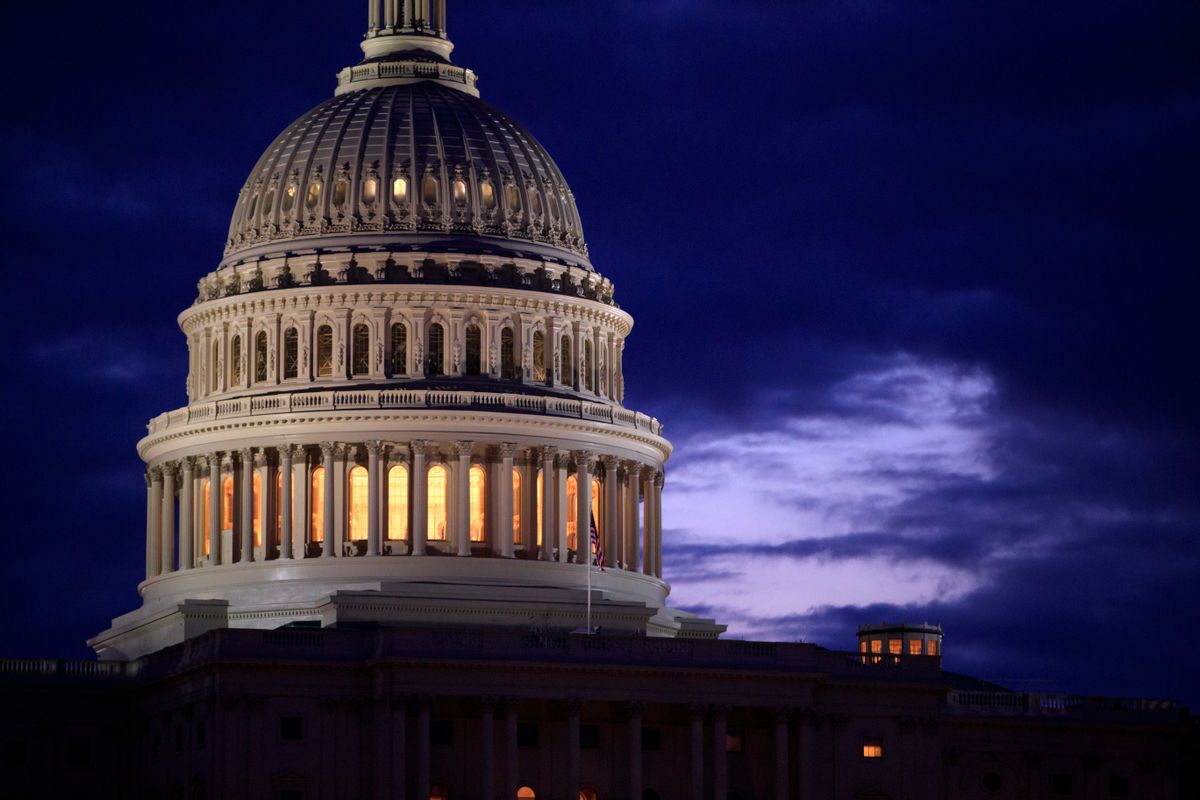After Hurricane Harvey ravaged the southeast coast of Texas in what has been called the "costliest and worst natural disaster in American history," the White House has asked Congress to pass a measure that would send $7.85 billion to help aid and recovery efforts, including Louisiana, according to multiple news reports.
Congress is set to return after weeks of summer recess, and while they will be faced with a busy September, the immediate focus will be on the aid package, which is expected to be passed quickly and will be tied with a package that raises the debt ceiling, the Associated Press reported.
"Somebody who's just been pulled off their roof doesn't want to hear about our internecine squabbles and debates over procedure when they've lost their homes and are trying to figure out where they're going to sleep the next night," Rep. Charlie Dent R-Pa., told the AP.
The White House Office of Management as well as budget director Mick Mulvaney has called for Congress to act quickly on raising the debt ceiling which will cause a government shutdown if not done, and suggested that the government would not be able to spend the money on the aid package for Harvey.
"If the debt ceiling is not raised, it may not be possible to outlay the requested supplemental appropriations or funds for other critical Government operations," Mulvaney wrote, according to the Washington Post.
Some Republicans have already publicly opposed a "clean" raise of the debt ceiling, because they want it to include additional spending cuts. Despite those positions being made public prior to the storm, staunch conservatives have since doubled down, and expressed criticism of pairing the two.
"To attach a debt ceiling vote to increased spending is not anything that any conservative would normally support," Rep. Mark Meadows, R-N.C., head of the House Freedom Caucus said, according to the AP.
While other Republicans have attempted to ease concerns, and instead, pledged unity.
"People need to know there's some stability here," Rep. Tom Cole, R-Okla., said, according to the AP. "We're not going to have to worry about defaults, we're not going to have to worry about government shutdowns, these guys are all grown-up, they're adults, and that ought to be the aim."
Over the last eight months, Congress has struggled to pass major legislation that supports President Donald Trump's agenda, which has caused Trump to frequently lash out at them. Another issue that will be factored into the mix is Trump's decision on DACA, which is supposed to be announced on Tuesday, September 5. It's currently unclear if Republicans will attempt to pass legislation that will protect the Obama-era law, but they have turned up the pressure, and have requested that Trump keep it alive.
The Trump administration faced a difficult summer that was rife with controversy, and Republican-led Congress failed to pass health care legislation, so a busy September is shaping up to be an enormous test, and the Harvey aid package may end up further complicating matters.



Shares